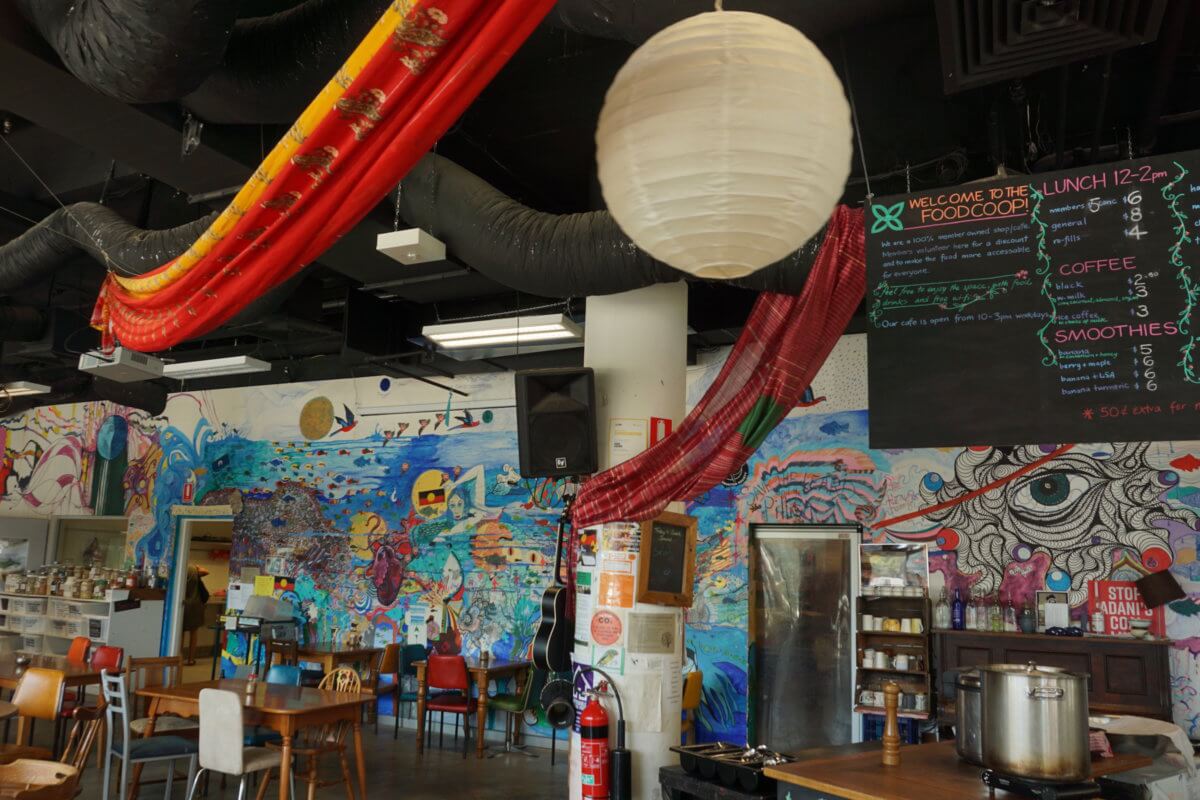The Food Co-op is one of those institutions on campus that everyone has visited at least once in their time at ANU. However the Co-op has found itself in financial trouble in the past twelve months, and held a meeting on Saturday to discuss with their ever loyal community what they can do to save their home.
The Food Co-op is a cafe and grocery store with a rich history at the ANU. It was started in 1976 as the ANU Nutrition Society. After battling through many different obstacles, it settled in its current home, under Lena Karmel Lodge, in 2012.
However, financial trouble means that the food co-op is facing difficulties and their future is uncertain.
The Food Co-op prides itself on being environmentally friendly and promoting sustainable food consumption. The Co-op is not just a shop, it is a community. Volunteers are the main worker base for the shop. The Co-op’s $6 lunches provide one of the remaining affordable food options in a climate of rising meal costs on campus. They also cater to people with dietary requirements, with all meals being vegan and gluten free.
However, financial trouble means that the Food Co-op is facing difficulties and their future is uncertain. At the Saving our Food Co-Op Community Lunch and Workshop last Saturday around 20 people came together to brainstorm ways to help remedy the financial situation. Chair of the Board, Ryan Godfrey, attributed the declining financial state to a significantly lower number of sales during the 2017/2018 financial year.
Currently, the board is reviewing how they can best optimise the business.
Comparing the 2016/17 financial report and the 2017/18 financial report obtained by Woroni, there was a $31,000 drop in income for the Food Co-op and a $12,000 drop in profit.
Small groups formed at the meeting to brainstorm and workshop potential solutions. As each group presented, similar ideas were suggested. Suggestions included: changing how the Food Co-op is marketed, increasing membership numbers, increasing reach with social media and longer opening hours on the weekends.
Currently, the board is reviewing how they can best optimise the business. Three working groups within the management collective are hard at work searching for solutions: the Space Revamp working group, the Communication working group and the People Power working group. All of these groups met at the end of the meeting to discuss what further can be done to save the Food Co-op.
The meeting ended with an optimistic tone. The passion the community has for the Food Co-op is inspiring, and hopefully this passion will see the Food Co-op running for many more years.
If you would like to get involved with the Food Co-op, go to this page.
For more information, visit the Food Co-op’s website or their facebook page.
We acknowledge the Ngunnawal and Ngambri people, who are the Traditional Custodians of the land on which Woroni, Woroni Radio and Woroni TV are created, edited, published, printed and distributed. We pay our respects to Elders past and present. We acknowledge that the name Woroni was taken from the Wadi Wadi Nation without permission, and we are striving to do better for future reconciliation.
